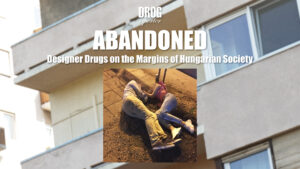Partnership for a Drug-Free America vs. Law Enforcement Against Prohibition
As Steve Rolles reports on the Transform Blog, our video on the Law Enforcement Against Prohibition generated a heated debate on the Beyond 2008 email-list. This video – Cops Say Legalize Drugs – was filmed by our team at the International Drug Policy Conference in Long Beach in 2005. It features the unconventional ideas of retired law enforcement officials to reform drug policy. Dr. Alex Wodak, Director of the Alcohol and Drug Service at St. Vincent's Hospital posted our video to the list as a testimony of "brave officers, lawyers and judges" whose commitment to reduce drug related problems is unsuspected.
In her response Calvina Fay from the Partnership for a Drug-Free America challanged the real commitment of LEAP spekars:
These guys in the videos are EX-law enforcement for a reason! Hundreds of thousands of current law enforcement officials consider them a disgrace to the uniform. This handful of video characters does not speak for the vast numbers of dedicated law enforcement men and women and, although they are entitled to their own opinions, they are NOT entitled to their own facts. They need to get their facts straight. The U.S., as well as other countries, has enormous health problems with alcohol and tobacco because they are legal and socially acceptable and society has done a dismal job of keeping these legal drugs out of the hands of our youth.
The U.S. may have a large prison population but, it is a much safer nation than most. Low level drug offenders are NOT sent to prison. They are sent to drug courts, community service, and treatment and put on probation. The drug offenders who are serving time in prisons, BELONG there because they have committed serious crimes. We could empty all of our prisons out if we legalized other crimes such as rape and murder, but most people would find that insane.
Drug use has been reduced dramatically in the U.S. since the 70s – at one point reduced by greater than 50%. This certainly is not what one would consider a "failure." If we reduced cancer, AIDS, teenage pregnancy, high school drop out, or any other social ill by this percentage, NO ONE would be calling it a failure!
Rather than fighting to make drugs more available and easier to use, everyone's efforts, including those of LEAP, would be better served to help us reduce the supply and the demand for drugs in the world. Science clearly shows that drugs are harmful and therefore, no matter how you sugar-coat it, there is no justifiable reason for making them socially acceptable and easier for people to use and harm themselves as well as put the rest of us at risk with their irresponsible behavior.
Calvina is the same person who was lobbying to exlude our camera from the Beyond 2008 meeting, and she is in a close relationship with the anti-drug crusaders of the White House.
On the following day Jack Cole, the director of LEAP posted his response to the list:
Answer to Calvina Fay’s accusations and statement of “facts”:
My name is Jack Cole. I am the executive director of Law Enforcement Against Prohibition (LEAP). I am also a retired detectivelieutenant-26 years with the New Jersey State Police and 14 in their Narcotic Bureau, mostly undercover. I bear witness to the abject failure of the United States’ war on drugs and to the horrors produced by its unintended consequences.
In the last six years the current and former law-enforcers at LEAP have made more than 4,500 presentations on replacing the war on drugs with a system of legalized regulation of all drugs. This includes attending more than 35 national and international law-enforcement conferences. During that time our members have received nothing but respect from other law-enforcers, even those who do not yet agree with us. That is because we spent our entire careers trying to end drug abuse by using current policy. We have not changed our minds about wanting to end drug abuse, we have simply changed our minds about what policies will be effective in accomplishing that goal.
It is only from folks like yourself, Calvina, folks who never spent a minute as a law-enforcer, that we are rebuked with statements like, "These guys in the videos are EX-law enforcement for a reason!" (The reason is we finished our decades-long careers of protecting the citizens of our countries and retired).
Considering the fact that about 80 percent of the current law-enforcers who personally have spoken with us about this issue agree that the war on drugs is a failed policy, it is hard to reconcile your statement that "Hundreds of thousands of current law enforcement officials consider [us] a disgrace to the uniform."
As for getting facts straight, Calvina's “facts” are:
1. …enormous health problems with alcohol and tobacco because they are legal and socially acceptable.
Under the original prohibition, alcoholic products were no longer regulated, resulting in a 600 percent increase in alcohol poisonings treated in our hospitals. "Bath Tub Gin" caused people to go blind and die. Alcohol consumers not only increased in numbers but elevated their consumption to drinks containing more alcohol. In New York City the year before alcohol prohibition went into effect there were 15,000 salons but five years into Prohibition there were 32,000 speakeasies; saloons sold mainly beer, but Speakeasies sold almost exclusively hard liquor. Of course, we also had the highest rates of murder and corruption of public officials under Prohibition ever recorded in the United States-until, that is, the current Prohibition, where we have achieved levels of death, disease, crime, and addiction never before imagined possible.
(For tobacco see my last paragraph)
2. The U.S. may have a large prison population but, it is a much safer nation than most.
The below chart lists 29 countries for reported crimes per 1,000 population and the number of prisoners per 100,000 population. It appears that the United States rates behind 24 of those countries as far as safety from crime is concerned but it does rate number one for imprisoning our own people.

Source: One in 100: Behind Bars in America 2008, The PEW Center on the United States, February 2008, page 35
3. Low level drug offenders are NOT sent to prison. They are sent to drug courts, community service, and treatment and put on probation.
The truth is, implementation of a policy of war on drugs is destroying people's lives. Police cast their nets so wide that many innocent people are caught in them. A car is stopped and five people are arrested because a bag containing a single serving of a hard drug or an ounce of marijuana (or less) is found under the seat; at least four of those arrestees may have been innocent. Innocent people die when police SWAT teams assault the wrong houses, but I'm sure Calvina would just see this as collateral damage in our drug war.
Even if I believed Calvina when she says, "low-level drug offenders are NOT sent to prison," drug courts are just one step removed from imprisonment, which comes when the probationer fails his or her urine test.
And arrest for nonviolent drug offenses are themselves terribly debilitating since the computerized arrest records track people for the rest of their lives, blocking their ability to be licensed by the state, their ability to be hired by many employers, their ability to attend colleges and universities, their ability to obtain apartments, their ability to travel from country to country, their ability to adopt children: basically their ability to have hope for the future.
4. The drug offenders who are serving time in prisons, BELONG there because they have committed serious crimes.
In fact, there are many people in prison who never committed a violent crime or for that matter any other crime than a drug-law violation. I put a lot of them there myself.
5. We could empty all of our prisons out if we legalized other crimes such as rape and murder, but most people would find that insane.
This is the kind of logic I expect from Calvina. There are two kinds of crime:, malum in se and malum prohibitum. The former refer to an act that is "wrong in itself." It is illegal because it violates the natural, moral or public principles of a civilized society. No one in their right mind would propose legalizing a malum in se crime.
An offence malum prohibitum, on the contrary, is not inherently evil, but becomes so as a result of being forbidden; as ingesting substances, "which being innocent before, have become unlawful in consequence of being forbidden."
Source: http://legal-dictionary.thefreedictionary.com/Malum+in+se
Ingesting drugs may be stupid and self-destructive. But neither the drugs nor the user are thereby rendered evil—as are rapists and murderers. To confuse the two types of crime, to equate intoxication and rape tells us a great deal about the person making that claim—but nothing useful about the crimes.
6. Drug use has been reduced dramatically in the U.S. since the 70s -at one point reduced by greater than 50%.
According to DEA, before the war was implemented in 1970, there were 4million people in the United States above the age of 12 who had used an illegal drug (2 percent of that population) but by 2003, DEA was telling us there were 112 million people above the age of 12 who had used an illegal drug (46 percent of that population). Somehow that does not sound like a 50%reduction.
Specific drugs do in fact go in and out of fashion, and when a particular drug falls into disfavor, people like Calvina claim that the War on Drugs is “working.” When drug use rises, they claim we need more troops. But overall, it is ludicrous to associate the tactics of this War with anything resembling success.
7. LEAP, would be better served to help us reduce the supply and the demand for drugs in the world.
Legalized regulation of all drugs would reduce supply and demand for drugs. Legalization would remove the artificially inflated value of illicit drugs, which can increase from source country to sale country by more than 17,000percent! Those drugs come from weeds that will grow anywhere and are worthless until we prohibit them. Then marijuana becomes worth more than gold and heroin more than plutonium. If those drugs were legal their value would drop to the point that drug dealers would not find it worthwhile to sell them on the street or induce others to become addicted to guarantee a customer.
Further, prohibition guarantees that the best way to reduce demand among the addicted—treatment—is not only underfunded but frightening to those who fear that acknowledging their addiction will lead to punitive state action.
8. Science clearly shows that drugs are harmful and therefore, no matter how you sugar-coat it, there is no justifiable reason for making them socially acceptable and easier for people to use and harm themselves as well as put the rest of us at risk with their irresponsible behavior.
I don’t want to get into a "good drug-bad drug" debate with Calvina. Suffice it to say that drugs should not be legalized because they are harmless. Indeed, the more dangerous the drug, the more reason to legalize it because we can't regulate and control anything that is illegal.
Currently the control and regulation of illicit drugs is in the hands of criminals and terrorists. They tell us what drugs will be supplied to our communities, how much will be supplied, how potent it will be, what it will be cut with, what age groups it will be sold to, and where it will be sold. If the criminal wants to sell heroin laced with Fentanyl to ten-year-olds on our playgrounds, that is what will (and does) happen. You have to ask yourself why our children tell us it is easier for them to buy illegal drugs than it is to buy beer and cigarettes. You also have to ask yourself why, according to DEA, there are 900,000 teenagers in the United States selling illegal drugs-but not one selling beer or cigarettes. Legalized regulation removes those drugs from the realm of our children, whether for use or as a business, and places it in legitimate businesses run by and for adults.
Moreover, legalizing drugs does not equate with making them socially acceptable. Tobacco, even though widely promoted and highly addictive, has been made far less socially acceptable through education and regulation. Cigarette use rates are falling faster among our youth than illegal marijuana use rates. In fact, the 50 percent decrease in the overall use of nicotine, the most addictive social drug known, has been the only success story in a hundred years of United States drug policy. The point LEAP makes is that we didn’t have to arrest or imprison a single user or distributor of nicotine in order to achieve this wonderful success story and we didn’t spend well over a trillion tax dollars in the process. There are better ways to spend our taxes than continuing the failed policy of a war on drugs.
Peace,
Jack A. Cole




